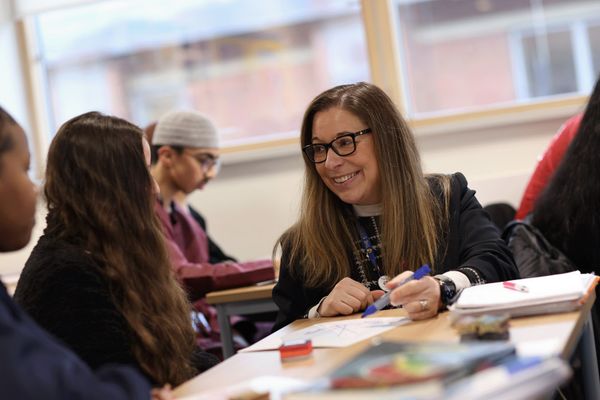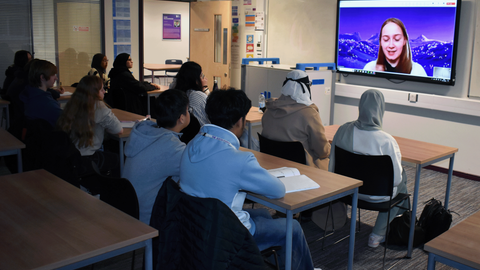Course overview
Qualified accountants are highly paid, valued individuals. They have an influence on everything you will see and do in life.
You will learn how to manage information, produce reports and analyse the performance of a business.
You will develop the skills needed to embark on a route to working as a high earning accounting professional, either by progressing through to university or on to a higher apprenticeship.

Entry requirements
Students studying three A Levels and/or AAQs will be expected to have a minimum of two GCSEs at grade 5 and three at grade 4, including English Language and Mathematics.
Students studying four A Levels will be expected to have a minimum of six GCSEs at grade 7, 8 or 9 including English Language and Mathematics at grade 6 or above.
Topics you will study
• An introduction to the role of the accountant in business
• Types of business organisation
• The double entry model
• Verification of accounting records
• Accounting concepts used in the preparation of accounting records
• Preparation of financial statements of sole traders
• Limited company accounts
• Analysis and evaluation of financial information
• Budgeting
• Marginal costing
• Standard costing and variance analysis
• Absorption and activity based costing
• Capital investment appraisal
• Accounting for organisations with incomplete records
• Partnership accounts
• Accounting for limited companies
• Interpretation, analysis and communication of accounting information
• The impact of ethical considerations
Key features
Accounting is a unique and diverse subject. Its academic and practical aspects will allow you to gain a critical understanding of the way in which financial information is used (and misused!). After an initial grounding in bookkeeping, you will explore the different branches within the accountancy profession as a financial accountant, compiling and analysing the accounts of sole traders, partnerships and limited companies.
You will also be facing the dilemmas of a management accountant, when using financial data to plan ahead and to help make informed strategic business decisions. Will a firm break-even? Should all decisions be based on maximising profits? How are accounts legally ‘window-dressed’ to present the firm in a desirable way? Should accountants consider the ethical impact of their actions? Which non-financial issues affect the decisions made by accountants?
No previous accounting knowledge is assumed. Examination questions require the use of extended written answers to evaluate financial information; acknowledging that financial information is a tool to assist with decision-making.
Assessment
Two examinations (three hours per unit) are taken at the end of second year. Each unit is assessed by a written exam.
Exam Board: AQA
Enrichment and Work Experience
All A Level Accounting students will have the opportunity to gain Microsoft qualifications in MS Office applications including Excel, PowerPoint, Outlook and Word. These practical skill are highly sought after and valued by employers.
Students have the opportunity to complete a one-week work placement or live-brief in the Summer term. The aim of this work experience is to enable you to gain an insight into the various different routes to becoming a qualified accountant and gain some insight into the different accounting specialisms such as Tax, Audit or Forensics. Students will also have the opportunity to attend talks by external speakers from a range of different employers and organisations such as Bolton Council and The Bank of England.
Why choose B6?
The Sixth Form Bolton is one of the few colleges to offer A Level Accounting and has an outstanding pass rate. You will benefit from a range of industrial visits to see how the theory works in practice.
Future career opportunities
Many students progress into a financial management career including: budget analyst, chartered accountant, business accounts, economics and the banking sector. For any student considering a leadership or management position, an understanding of accounting is a major benefit.
Additional information
Students studying Accounting without A Level Mathematics will study Core Mathematics to support their studies in this area.
Jawad Ali Akhtar
Studying:
A Level Accounting, Spanish, Single Vocational A Level Business and AS Level Core Mathematics
Previous school:
Sharples School
Related Courses
News
B6 Alumni Member, Claire Taylor, Inspires EPQ Students
Former Smithills School and then Sixth Form Bolton student, Claire Taylor, joined us from her
Exceptional achievement for young rugby stars
Exceptional Achievement for Young Rugby Stars Jack Lightbown, aged just 17, was recently selected
Sixth Form Bolton Hold Trailblazing STEM Careers Day
Sixth Form Bolton Hold Trailblazing STEM Careers Day Last week, first-year students from The









